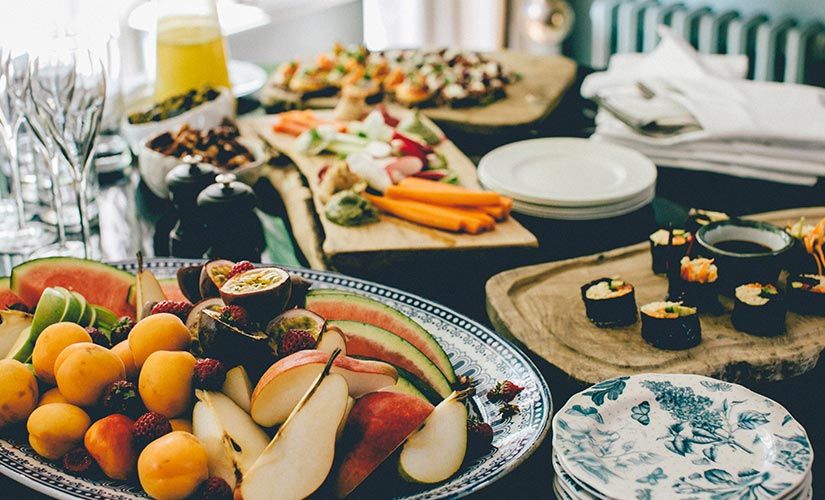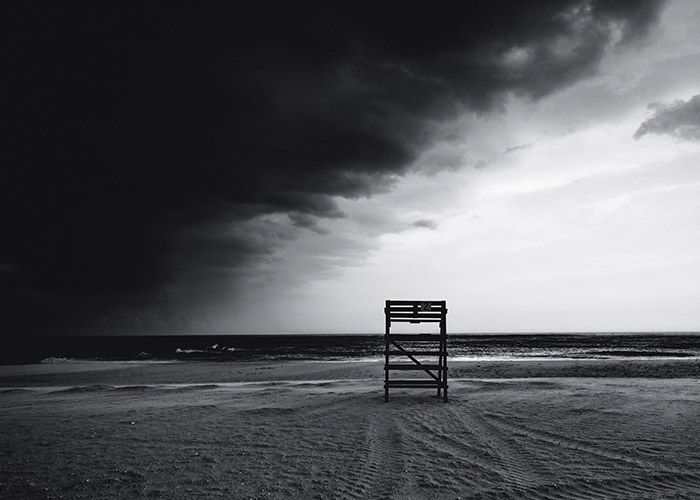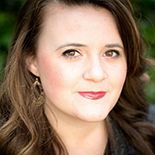There is an image in my mind which was planted in the earliest dawn of my memory, and which I hope will remain with me into the twilight of old age. It is of my mother reading her Bible. She sits enthroned on her overstuffed blue chair, ensconced in a soft red bath robe, bathed in the cool light of morning. A cup of coffee sends writhing wisps of steam into the air from its precarious perch on the arm of her chair. Her Bible lies open on her lap, the well-loved pages threatening to make a desperate bid for freedom from the sagging binding. She reads, she prays, she smiles at me as I patter into her quotidian sanctuary.
From a young age, I knew that when I thirsted for wisdom, I could go to my mother because her well was deep, dug over many years of patiently pouring over Scripture. This early lesson has been an important one for me as I have sought to live wisely myself. Our world is famished for wisdom, hungry in the depths of our souls. While the price of information is very low these days, proffered through every search engine and flickering phone screen, the price of wisdom is high. Three women have taught me how to search for wisdom: my mother, and Lady Wisdom and Lady Folly from the book of Proverbs. These three have taught me that if I want the kind of wisdom that nourishes and satisfies the soul, I must first be willing to put in the necessary preparation. I must invest deeply in Scripture. When we do, we’ll be nourished by the feast of wisdom there—and be able to offer it to others.
Two ladies
The book of Proverbs personifies Wisdom and Folly as two women. These characters help us to recognize the difference between wisdom that nurtures and advice that tastes good, but which leaves us hungry. The stately Lady Wisdom is depicted mainly in chapters 8 and 9, but her presence is scattered throughout Solomon’s book of wisdom. She’s described in the following passage:
Wisdom has built her house;
she has set up its seven pillars.
She has prepared her meat and mixed her wine;
she has also set her table.
She has sent out her servants, and she calls
from the highest point of the city,
“Let all who are simple come to my house!”
To those who have no sense she says,
“Come, eat my food
and drink the wine I have mixed.
Leave your simple ways and you will live;
walk in the way of insight.”
(Proverbs 9:1-6)
When I first read this passage as an extroverted teenager with a mind of my own and a propensity for speaking it, this image of womanly wisdom appealed strongly to me. Lady Wisdom is well dressed, confident, assertive, hospitable. This is no mousey woman; she advises and even mocks the fools of the city: “I will mock your calamity; I will sneer when terror strikes you” (Proverbs 1:26). She has a good head on her shoulders and a sharp tongue in her mouth. One feels that if she lived today, she would wear bright lipstick.
Proverbs also tells about another woman calling out to the passing fools. This is Lady Folly (or Foolishness).
Folly is an unruly woman;
she is simple and knows nothing.
She sits at the door of her house,
on a seat at the highest point of the city,
calling out to those who pass by,
who go straight on their way,
“Let all who are simple come to my house!”
To those who have no sense she says,
“Stolen water is sweet;
food eaten in secret is delicious!”
But little do they know that the dead are there,
that her guests are deep in the realm of the dead.
(Proverbs 9:13-18)
In appearances, Wisdom and Folly share some similarities; they both stand at the city gates—the most prominent place in the city—to call out to the fool, promising a sumptuous feast. But one leads to the “realm of the dead” and the other “the way of insight.” What is it that makes these two characters different?
Calling out and calling in
In many ways, our culture has adopted a combination of these images for its own conception of wisdom. We can see this in the “call-out” culture of the internet. We live in a time that has almost mastered the art of mocking the fool. The apparently wise people of Twitter and Facebook stand at their metaphorical city gates, ready to mock anyone who reveals ignorance, indelicacy, or impiety. The “wise” ones plie the fumbling fools of the world wide web with pithy critiques and spicy zingers. However, as Proverbs helpfully demonstrates, some things that appear like wisdom may actually be foolishness. How can we tell the difference?
The fundamental difference between Lady Wisdom and Lady Folly is that one merely calls out to the fool, while the other calls him in. Lady Wisdom calls the fool to grow in wisdom by feasting at the table she has prepared. There is a hospitality in the rebuke of Lady Wisdom, a severe mercy in her sometimes sardonic appeal to the fool to turn from his destructive ways. Though she may laugh at his calamity, her laugh is healthful. Lady Wisdom invites the fool to sit at her table, to learn what is wise, to eat the sweet fruit of righteous living. On the other hand, while Lady Folly calls out to the fool, she has no refuge or feast to offer—only the temporary gratification of his foolish desires. She can only call out the fool; she cannot invite him into safety. And we can see this emptiness mirrored in the call-out culture of the internet. No hospitality is offered to the fools of the internet; they are left alone, ashamed, and unnourished. Despite the loud voices, there is no welcome into a home with sturdy foundations.
The feast
The difference between the two is that one has actually prepared a feast for the fool, and the other has not. People cannot feast at an empty table. Lady Wisdom is able to invite the fool to eat at her table because she has prepared for hours, days, even years before hand. The passage about Lady Wisdom describes her building her home, tenderizing her meat, mixing her wine, setting her table, instructing her servants. All of this took tremendous foresight and planning. She stands at the city gate to call out fools because she has prepared her entire life to lead stubborn hearts toward right living.
If we want to be like Lady Wisdom, we must do what it takes to prepare a feast of wisdom. I think this could be described as the difference between calling someone out for their folly, and calling someone in to the nourishing feast of wisdom. Folly can only participate in the “call out” culture because she has nothing substantial to offer. This presents a crisis not only for the fools who run to Folly seeking fulfillment, but for the lady herself; she has no feast for others or nourishment for herself. When our desire to call out foolishness outpaces our own wisdom, we become Folly, just another voice in the caterwauling roar of culture. We leave others hungry and are hungry ourselves.
The blue chair and the city gate
What, then, would it look like for us to become more like Lady Wisdom?
Certainly, a world as confused and despairing as ours needs the strong and clear voice of Lady Wisdom to call out to it, to correct it, even, sometimes to mock it. But that voice will ring hollow and will only contribute to the cacophonous chatter of modern life, if it does not invite the fools of today into a quieter, deeper wisdom. That wisdom is forged in the fire of unseen moments, in a relentless return to the pages of Scripture, in the marathon of a life lived well. A truly wise woman can offer a feast of wisdom because she has a storehouse of knowledge gathered through intentional and regular time spent in the reading of Scripture. Her ability to offer wise insight has been cultivated through a careful attentiveness to the voice of the Holy Spirit in prayer. Her subtlety and prudence has fermented to maturation over years of a holy life. This kind of wisdom cannot be manufactured or swiftly produced; it is a crock pot feast, not a microwave dinner.
I return to the memory of my mother in her blue armchair. In my little girl heart, I knew something significant happened in those early mornings. As an adult I understand the power of my mother’s ritual. If we want to be worthy to call out to fools at the city gate, we must first be willing to sit every morning in a blue arm chair searching the pages of Scripture with an attentive heart. The silence of a chosen quiet time may feel strange in contrast to the raucous discord of the world, whose voices are always contending for who can seem most clever and relevant. But the richness of this silence will not disappoint. My mother quietly cultivated a heart of wisdom, rooted in Scripture, and purified through prayer. Like Lady Wisdom, she was preparing a feast, ready to welcome the foolish and those who wanted to be wise, calling them in to a well laid table and a satisfying feast of wisdom.
I want to join in the preparation of this nourishing feast. So, in the cool blue light of morning, I’ll imitate my mother, and the many generations of women in the line of Lady Wisdom. I’ll subdue my heart in quietness, I’ll fear the Lord, I’ll eat the satisfying food of good living. And hopefully, in time, I too can become a host at Lady Wisdom’s table.
Read more posts about: Spiritual Formation
Thanks to the support of our faithful financial partners, American Bible Society has been engaging people with the life-changing message of God’s Word for more than 200 years.
Help us share God's Word where
needed most.
Sign up to receive Bible-reading tips, tools and resources.




